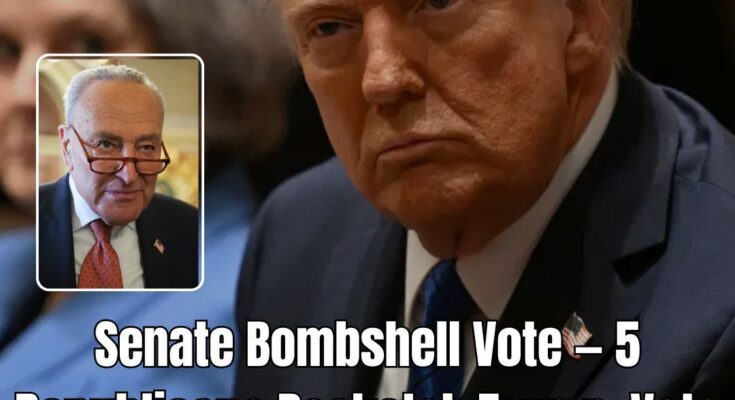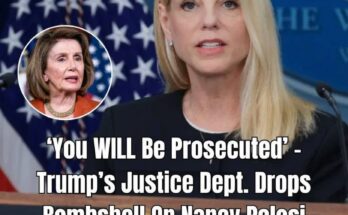
This article may contain commentary
which reflects the author’s opinion.
The Senate voted Tuesday to repeal President Donald Trump’s tariffs on Brazil, with five Republican senators joining Democrats in support of the measure.
The 52–48 vote amounted to a symbolic rebuke of Trump’s trade policies, as House Speaker Mike Johnson (R-La.) has said he will not bring the bill to the floor, and Trump is unlikely to sign it if it reaches his desk.
The legislation was led by Sen. Tim Kaine (D-Va.). Republican Sens. Lisa Murkowski of Alaska, Susan Collins of Maine, Mitch McConnell and Rand Paul of Kentucky, and Thom Tillis of North Carolina joined all Democrats in voting for the repeal.
This marks the third time Democrats have brought forward resolutions seeking to end President Trump’s tariffs, and it drew the most Republican support to date. In April, the Senate voted to repeal Trump’s tariffs on Canada, with backing from Murkowski, Collins, Paul, and McConnell.
A separate April effort to overturn Trump’s 10% across-the-board tariffs, however, failed after McConnell did not cast a vote, Axios reported.
Earlier this month, Trump announced that he had a “positive” call with Brazilian President Luiz Inacio Lula da Silva regarding tariffs.
Da Silva asked Trump to remove the 40 percent tax on Brazilian exports and the restrictions the U.S. put on local governments. The two leaders talked on the phone for 30 minutes earlier in the day and promised to meet in person “soon.” The statement added that the call was cordial.
According to the statement, da Silva suggested a meeting during the ASEAN Summit in Malaysia and said he would be willing to go to the US. Brazil’s government said that both presidents gave each other their phone numbers so they could talk directly.
Fernando Haddad, Brazil’s finance minister, told reporters in Brasilia following the meeting that the call was “positive.” Geraldo Alckmin, the Vice President, and Mauro Vieira, the Foreign Minister, were also there.
Trump claimed in August that he wanted to meet with da Silva after a brief meeting at the U.N. General Assembly in New York. He also remarked that they had “excellent chemistry.”
Brazilian markets have been eagerly watching the meeting between the two leaders as Brazil had to pay some of the highest tariffs in the world.
At first, Brazil had to pay a minimum duty of 10%, but Trump later boosted the rate to 40% on a number of important exports, making the total tax 50%.
Trump argued at the time that the tariffs were a retaliation to what he called a “witch hunt” against his ally, former Brazilian President Jair Bolsonaro, who was convicted and sentenced to 27 years in prison for trying to mount a coup to stay in power after losing the 2022 elections to Lula.
The Trump administration used the Magnitsky Act to punish Brazil’s Supreme Court Justice Alexandre de Moraes, who was in charge of Bolsonaro’s case. It also took away the visas of six high-ranking officials, such as Jorge Messias, the Brazilian Solicitor-General.
Lula said at the U.N. General Assembly last month that there was no reason for Brazil’s institutions and economy to be targeted by one-sided and arbitrary actions without naming Trump.
Meanwhile, on Wednesday, Trump, who is currently in Asia, said he had reached a trade deal with South Korea.
“We reached a deal. We did a lot of different things. Great session,” Trump told reporters, according to a White House pool report. “We came to a conclusion on a lot of very different items.”
South Korean President Lee Jae Myung’s chief of staff, Kim Yong-beom, told reporters that the two countries had reached “an agreement on details” in ongoing tariff negotiations, according to The New York Times. The aide said the Trump administration had agreed to reduce tariffs on South Korean imports from 25 percent to 15 percent.
South Korea has faced a 25 percent import tax on automobiles, a policy that has posed challenges for major automakers such as Hyundai and Kia, The Hill reported.


